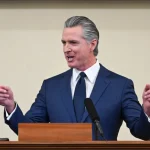
Attorney General Merrick Garland on Wednesday vowed that the federal investigation into Hunter Biden’s business dealings would be free from political influence during a heated Judiciary Committee hearing on Wednesday.
Garland has pledged before not to interfere in Delaware U.S. Attorney David C. Weiss’ probe into Hunter Biden and his foreign business dealings, which are currently under both federal and congressional investigations.
But Garland has come under scrutiny for not elevating Weiss to special counsel status to ensure his independence. On Wednesday, Sen. Chuck Grassley, R-Iowa, pressed Garland on what would happen if Weiss needed to pursue the case against Biden outside his Delaware jurisdiction.
JOE BIDEN MET WITH AT LEAST 14 OF HUNTER BIDEN’S BUSINESS ASSOCIATES WHILE VICE PRESIDENT
Garland conceded that Weiss would have to refer the case to another district in that case, though he maintained that the decision on whether to make an outside referral is entirely up to Weiss.
“[I]f it’s in another district, he would have to bring the case in another district,” Garland said. “But as I said, I promise to ensure that he’s able to carry out his investigation and that he’d be able to run it. And if he needs to bring it in another jurisdiction, he will have full authority to do that.”
Grassley replied by pointing out that the possibility of a referral means it could be up to a Biden appointee to pursue the case outside Delaware. “If Weiss, the U.S. attorney there in Delaware, must seek permission from a Biden-appointed U.S. attorney to bring charges, then the Hunter Biden criminal investigation isn’t insulated from political interference as you have publicly proclaimed,” Grassley said.
Grassley also asked Garland if Weiss could more effectively bring charges against Hunter Biden if he were made a special counsel.
“It’s kind of a complicated question,” the attorney general replied, adding that such a decision would have to be brought to him first. “I would then have to, you know, authorize it and permit it to be brought in the jurisdiction – and that is exactly what I promised to do here.”
In his closing question he pressed Garland on whether he believed “improper or unlawful” payments from a foreign government to “elected officials or other politically-exposed persons” would constitute a national security concern.
“If it’s an agent of a foreign government asking someone and paying someone to do things to support that foreign government in secret, yes, I definitely think that would be a national security problem,” Garland said.
Scroll down to leave a comment:









